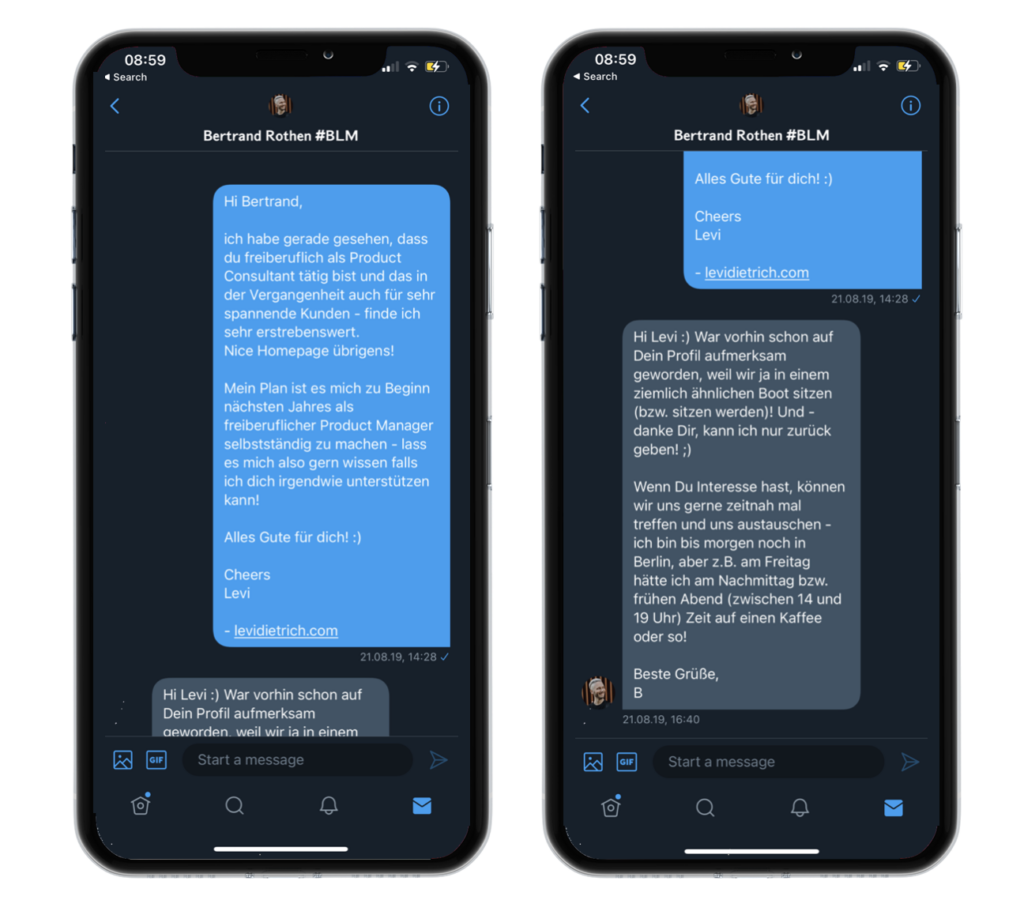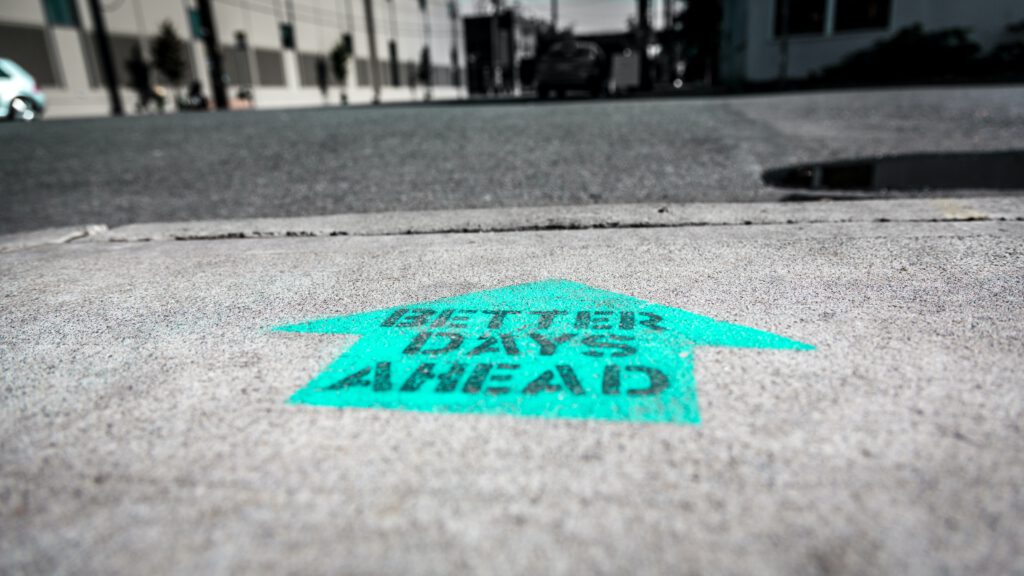Because nothing says “success” like a corny stock photo. Photo by Zac Durant on Unsplash
If you came to find a magic recipe here — sorry, you won’t find that here…because that doesn’t exist.
You might’ve heard that the first client is the hardest to close — and there’s some truth to that: somewhat understandably, some clients are reluctant to work with “first-timers” — even if you’ve got prior work experience in your field.
On the run again? Here are our TL;DR Key Takeaways again:
- There’s no single best path to success here — such a claim would be as ludicrous as claiming there’s one best diet out there. Instead, don’t just sign up to just one platform, or talk to one recruiter — try to engage with lots of leads & opportunities, you’ll eventually learn what will work for you & what won’t.
- Overdeliver on your first pitch & project — every business owner & entrepreneur (or at least the successful ones) will testify to the fact that starting a business is a sh*t ton of work and requires lots of dedication before it might get easier. Blowing your first client’s mind is also a great counteractor to impostor syndrome — more on that here.
- If you’re considering using a gig platform such as freelancer.com or Upwork — don’t. Just don’t.Unless you’re interested in working for $5/hr or having your credit card info scammed. Sorry, folks — the experience on those platforms has been gravely underwhelming for us.
Still here? Alright, let’s get into it:
Lean Back — It’s Story Time
To start, I’d like to share my own experience with you.

Going back to the summer of 2019, when I finally decided to give freelancing a shot, I started a very adventurous chapter of my life, with significant ups, as well as downs low as Hell’s boiler room.
It was a very warm summer day, and I was on holiday, visiting my mom at the coast of the baltic sea.

We sat in the garden, reminiscing about the last half year or so, which had been intense, to say the least — while struggling with some private issues, I had started at a well-known consulting company, a major milestone in my career roadmap.
At first, I was super motivated and ready to consult my brains out. Unfortunately, that euphoria died quickly since everything turned out to be quite different than expected.
Don’t get me wrong — working for big consulting companies is not a bad thing at all, it just didn’t work out for me.
The harder I tried to fit in, the worse my mood and stress levels got — I even looked dissatisfied and unhappy.

So — it was time for a change.
I was playing with the enticing idea of becoming a freelancer, but of course, top of mind for me was: “Will I be able to make a living doing this, and how do I land clients?”. A good year later, I’ve accomplished that — so I’d like to share how I did land my first client.
If you‘d like more detail about my start as a freelance product manager, I recommend my interview with our colleague and friend Christos Stavrou (in German):
Please bear in mind that the following tips are not a blueprint for success, but just things that worked for me.
Only building a website and waiting around for potential clients won’t work — you need to go out there (physically or virtually) and position yourself in the market. This might seem hard to some of you, but trust me — it’s worth it.
Talk to your (former) professional contacts!
After I decided to become a freelance product consultant, I thought it would be a good idea to double-check my plan with former colleagues and friends.
People that know how I work, know my strengths and weaknesses.
Aside from great advice, this yielded a great “side effect”: I was offered access to their network including other professionals and potential clients.
As a matter of fact, this was what got me my first freelance gig — a personal recommendation.
Get on that phone! 📞
So — sure, your existing network is great as a first point of contact.
But let’s assume that you maybe don’t have a great network that you can just send a quick message to and score a client out of.
That means — yep, you need to build one.
And if you think you can just get LinkedIn Premium and send a bunch of unsolicited InMail messages (please don’t do that!), we’ve got bad news for you — that doesn’t work.

Get in touch with peers!
If you’ve ever wondered how Bertrand Rothen and I met (I can just tell you’re dying to know, lol) — here’s the short answer:
I sent him a DM on Twitter.
We met over coffee, and he offered me some very useful advice.
We teamed up and kept in touch about getting started in freelancing.
We ended up getting booked on the same project.
And the rest — is history.

I mentioned earlier that it‘s a must to go out and build your own network.
This includes getting in touch with peers that might be more experienced and more established than yourself. Of course not everyone will answer your call, but don’t give up too early.
Pro-Tip: Don’t open your message with “Hey man, I’ve got some questions…”. Build relevance by referring to a piece of their work that you liked (only if you mean it, don’t be a suck-up!) and/or a shared interest. Can’t come up with anything for someone in particular? Then maybe you need to look elsewhere!
Build a website!
What’s the first thing you do when you make an interesting professional contact?
I’ll go & gather intel about that new contact via Instagram, LinkedIn or XING — as a lot of people do, actually. So make sure that it’s easy to find you, as well as your CV and reputable skills.

Needless to say, freelancers with professional websites come across as more professional. “But I can’t code” isn’t an excuse here — there are lots of great website builders out there that’ll do the trick with low effort and cost required, like WIX, Squarespace or Jimdo.
Work with headhunters! (not with just one, and not with anyone)
Headhunters and recruitment agencies can be very helpful when looking to land your first gig —among others, that’s how Bert got started.
However, I recommend not to just work with anyone. Instead, you should be kind of picky here.

There are two aspects to this:
Hard Facts
Do some research on the agency.
Look for experiences that other freelancers have shared online, as well as how compelling their references are (or not).
Gut Feeling
Check your recruiter’s vibe!
This is a super important aspect, since this person is a representative of the company you are going to do business with.
Choose your business partners wisely — and if something seems off to you about a recruiter or deal, stay true to your gut and turn them down. Before a deal’s done, you owe them respect for their work and their time, and nothing more!
One thing that’s odd to me: some headhunters won’t work with “first time freelancers”. You might have a gajillion years of professional experience, but if you’re a “freelance virgin” — close, but no cigar.

ABL (Always Be Learning)
Also — give it some time.
You’re going to go through a couple of conversations that will not yield (immediate) results.
Look at those as practice. This is key!
If you strike out on the first few, 10, even 20 conversations — don’t get discouraged, don’t listen to your ego. I’d say it’s completely normal to be unsuccessful on the first 20–30 conversations if you’re ramping up a completely new business and taking a new approach — which is exactly what you’re doing.

Instead, try to review what might’ve been the reason (if your prospect is open to disclose their reasons, that information is super helpful!), and see how you can use that information to refine your approach.
The only thing you need to hold yourself to: get better with every try.
Because: if you do, it’s only a matter of time until it works out.
Here are a few guideposts for your review:
- Did you correctly understand the prospect’s JTBD?
- Would you be able to solve their issue? If yes, did you convey that adequately?
- Did you do enough upfront research?
- Did you use the right tonality in the conversation?
- Is your résumé reflective of the above?
- Anything else — did you talk too much? Too little? Formal errors, like wrong names, spelling, etc.?
Overshoot to keep flying high
So — we’re hoping that you’re at least close to reeling in your first contract by now.
Let’s be real for a bit.
Lots of established freelancers and entrepreneurs had to hustle to get skin in the game — like overdelivering, free work, or at least discounted rates.
Wait — should I work for free?!

No. Please don’t.
But — there’s no shame in giving your first client a discounted rate.
Compare this to Airbnb: new listings that don’t have any ratings yet are of course less attractive than listings with comprehensive reviews that give users information and a sense of security.
So, what are those Airbnb sellers supposed to do to get those good reviews that will build their property’s reputation and have it “rent itself”?
They first offer a discount to generate interest, and then overdeliver on their first renters’ experiences to best use that interest.
So, consider offering an attractive discount — I’d say that would be around 20% — and then bringing your A-game to really affirm their decision.
(But don’t forget to raise your price again after that!)

They’ll gladly recommend you to others — or might want you back themselves. And word of mouth is still the strongest marketing channel in this business.
So, how about it?
Are you starting out as a freelancer? Are you struggling to get your first client? If you’ve been a freelancer for a while — how did you break into the business? We’d love to hear from you, please leave us a comment below!👇
Interested in more stories around freelancing in Product Management? We publish regularly to our Freelance Product Manager publication & would appreciate a follow! 👆
And as always,
Thanks so much for reading!
We acknowledge that with the 9 minutes, you could’ve literally done anything else, and we’re very honored that you decided to dedicate them to our piece! ❤️

